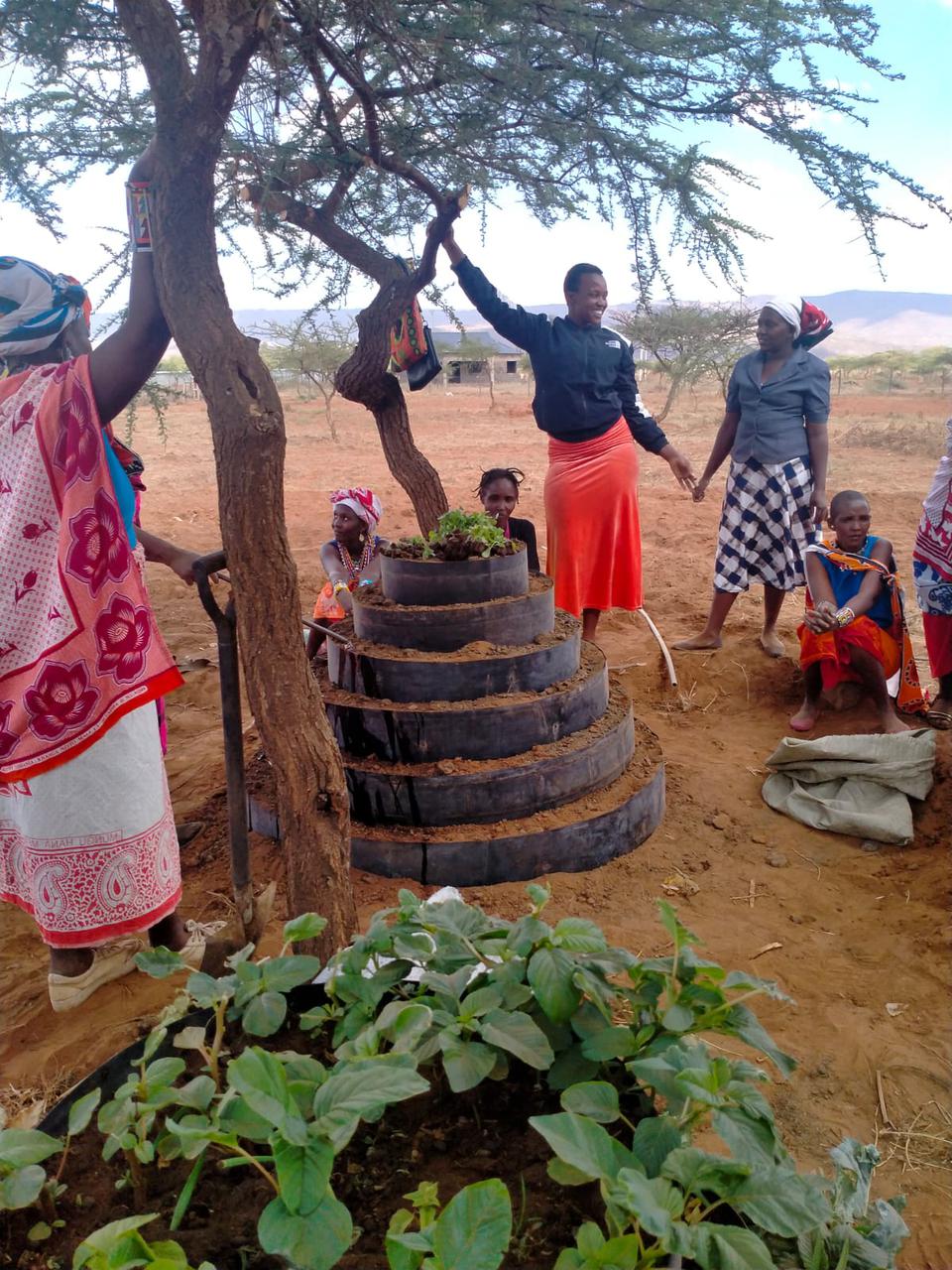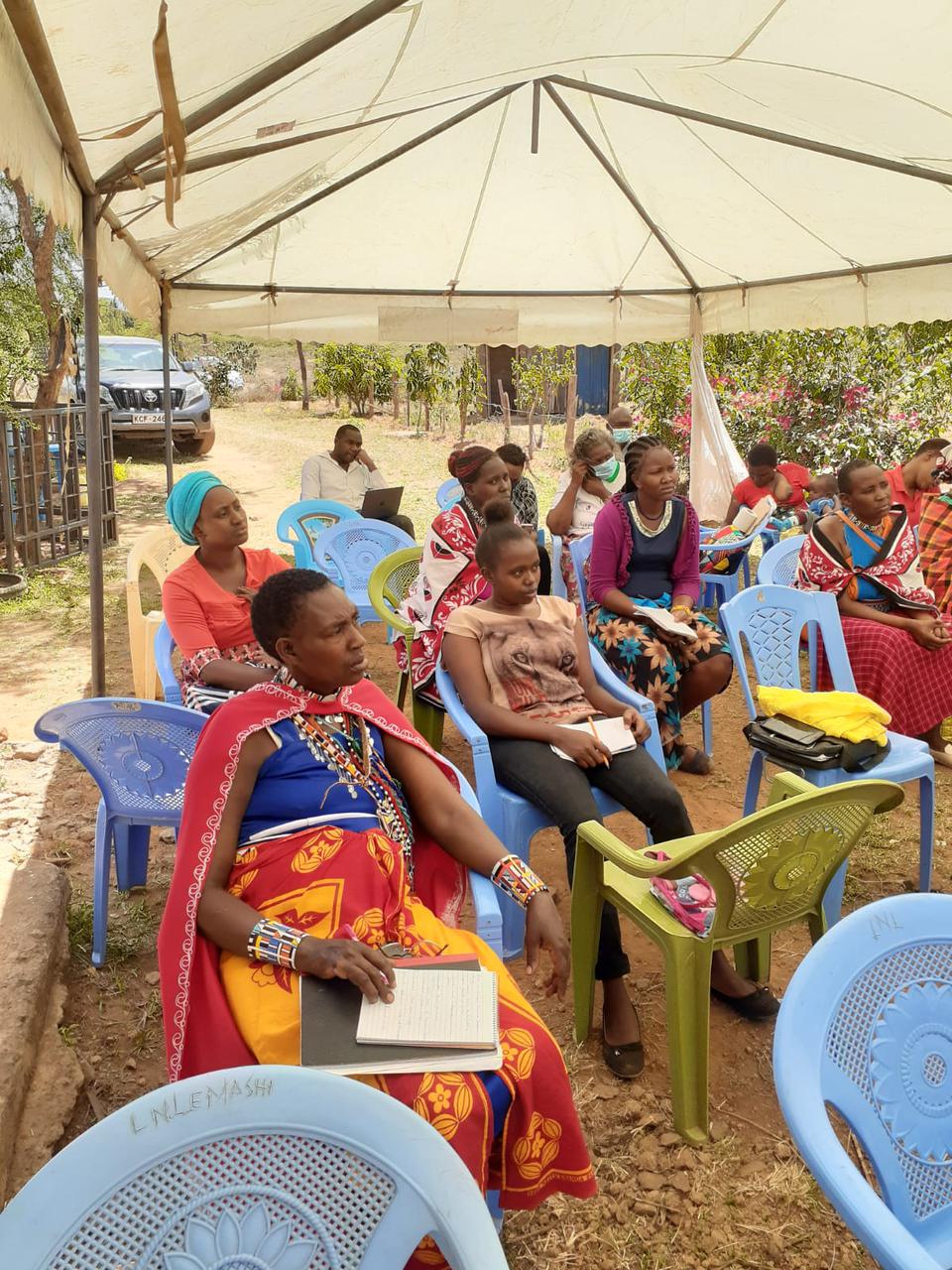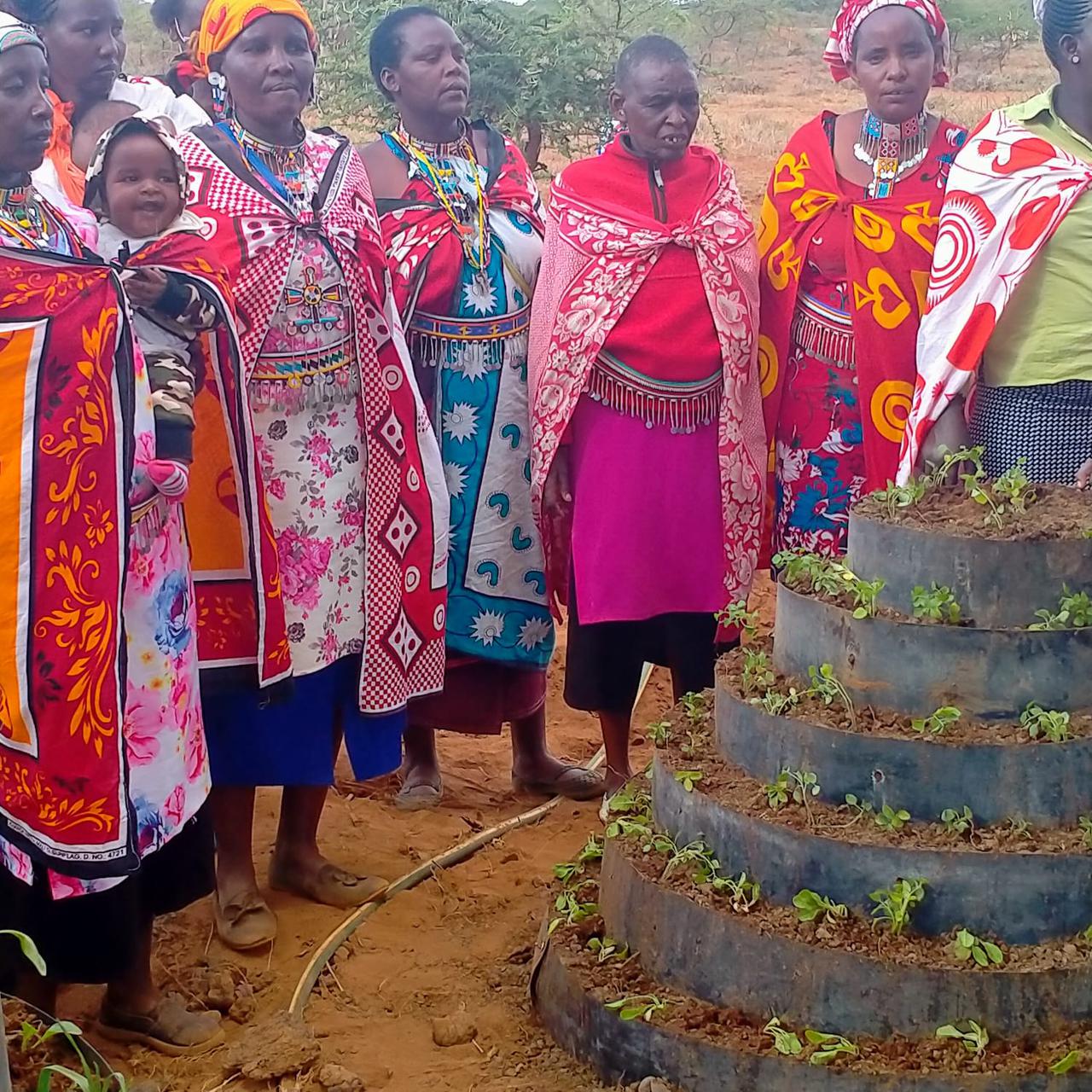Maasai women embracing new farming methods
Organization: RURAL WOMEN NETWORK
Donor: GLOBAL RESILIENCE PARTNERSHIP (GRP), CLIMATE JUSTICE RESILIENCE FUND(CJRF) AND INTERNATIONAL CENTRE FOR CLIMATE CHANGE AND DEVELOPMENT (ICCCAD)
Beneficiaries: 2,500
In areas ravaged by droughts intensified by climate change, women from traditional cattle farming communities in Kenya are expanding their knowledge and skills so that they can get climate smart and adapt to an increasingly arid environment.
Kajiado County, a vast area in the south of Kenya on the border with Tanzania, has been home to Maasai people for hundreds of years. Historically all their needs for food have been met by their cattle, but this way of life is today under threat.
Longer and more severe droughts means that the dwindling numbers of livestock on which they depend have to be moved more frequently to other areas for pasture. Women are left behind to ensure school-age children receive an education. This leaves women with no reliable source of income, and they are forced to try and make money by selling cow dung, milk and bead ornaments for income. The knock-on effect for many of their children is that they grow up in poverty and are malnourished, with one in every four in the county now stunted, and nearly one in every ten underweight.
“Climate change has affected me because I can’t get enough water for my livestock,” says Naipanoi Lemashisha, a Masai who works with women groups in the region. “This forces me to move due to lack of pasture, leaving me with no milk sometimes. I have to consume black tea and get no income from milk sales."
Naipanoi is not alone, as her story is repeated in boma after boma – Masaai homesteads – across the county.

Rural Women Network – an inclusive platform of women that aims to empower rural grassroot women smallholder agricultural producers in Kenya – is working to change that. Its locally led ‘Step it up With Indigenous Women for Resilience’ intervention, described as ‘for Maasai women, by Maasai women, and with Maasai women’, places local communities at the front-line of addressing climate change through their day-to-day socio-economic activities.

From the start of the project, the women – who are the designers and implementers of the project – have focused on creating an initiative that supports sustainable farming in the future. Through consultation with women from the local communities, a Grassroots Women Resilience and Livelihoods Center in Kajiado West sub county was established. Today, the center is a green hub and a one-stop farm where women can discover more about resilience, being climate smart and new practices such as conservation agriculture. The center is an important platform for food security, and helps local people learn how to diversify by growing vegetables, fruits, establish tree nurseries and fodder – all while conserving natural resources including soil, water, land, landscape, and land cover.
“Irregular weather patterns affect our region’s agriculture production,” explains Pauline Kariuki, Director of Rural Women Network, who is also a farmer. “We’ve built the capacity of rural women in climate and conservation agriculture, focusing on food, nutrition and economic security. Resilient recovery needs all of us. Let us commit to do our part because we can."
Cone gardens are a simple but effective form of farming adaptation. While these gardens – which are conical in shape and also known as vertical or multi-story gardens – require minimal space, they allow for intercropping, and the leafy vegetables form a canopy that covers the terraces and reduces the growth of weeds. High nutrient concentration makes them highly productive, with a single cone garden sufficiently large to house 120-130 spinach seedling – enough to feed a family all year round.

Over 600 households have engaged with the project, which equates to around 3,000 impacted people based on extrapolating for five members per household. Nutrition has already improved as a result, and the expectation is that the level of malnutrition will reduce over time.
Other benefits of the intervention are wide ranging. It mobilizes local women (who are the caregivers in the community) into learning groups and provides them with key knowledge and skills. In addition, it provides their households with food and nutrition security and a greater sense of economic empowerment. This contributes to women playing a greater role in decision making – in what remains a largely patriarchal society – while building their confidence through training creates new climate leaders that are willing to improve and drive future climate adaptation responses.